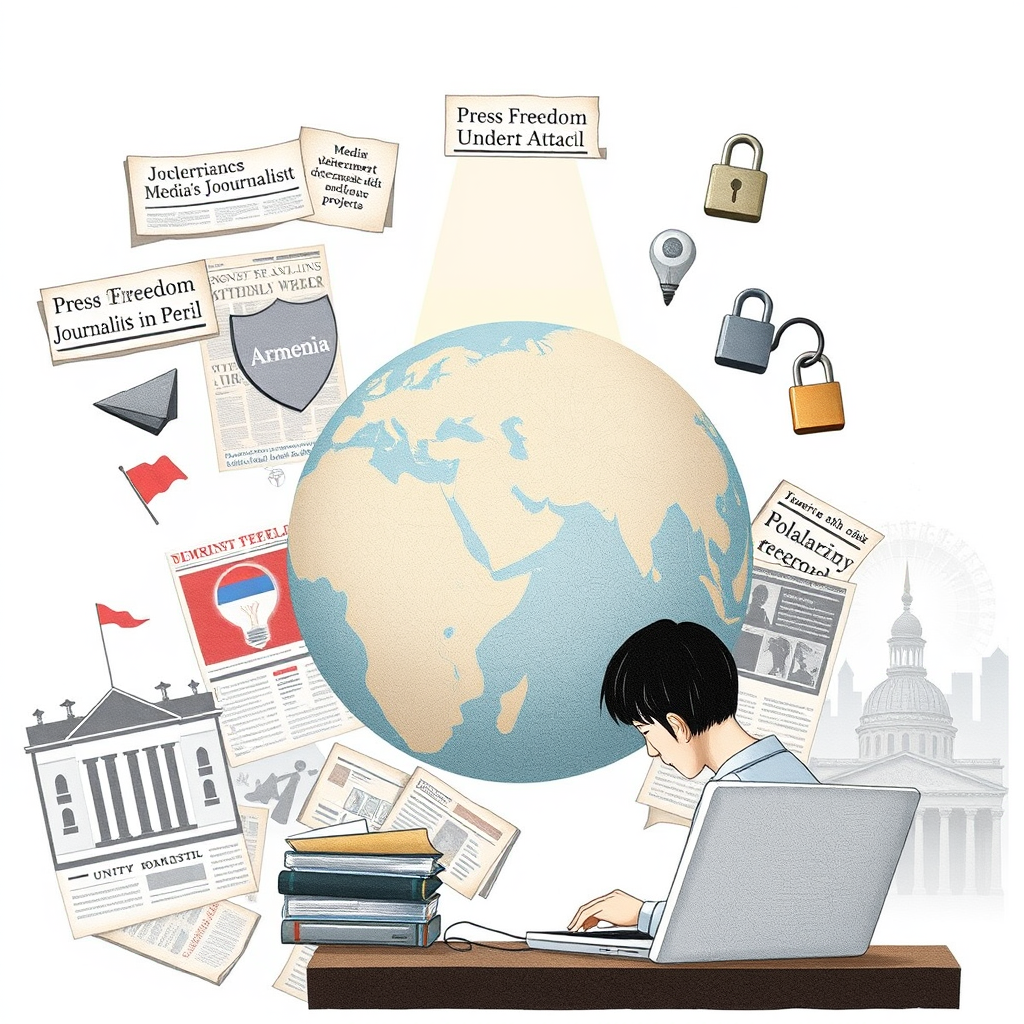Independent Media Faces Global Crisis

Independent journalism is not a mere luxury; it is the bedrock of functional democracies, serving as the first line of defense against corruption and disinformation. When journalism falters, so does democracy, leading to instability and, often, violence. Supporting media is thus not just about free expression but about international security and economic resilience. This is not a theoretical concern but a reality unfolding in fragile democracies worldwide.
A recent report from the Baltic Center for Media Excellence in Armenia highlights this issue, serving as a global warning. As we commemorate World Press Freedom Day, it is crucial to address the challenges facing independent journalism in developing democracies, especially with the dismantling of U.S. government media development projects under the Trump administration.
For decades, U.S. government programs like USAID’s media assistance portfolio have been vital in sustaining independent journalism. These programs have funded cybersecurity training, supported legal defense for journalists under threat, improved infrastructure, and helped outlets build sustainable business models. These efforts were not ideological but essential for democracy and national security. Unfortunately, they are now being defunded or dismantled due to isolationist rhetoric and attacks on foreign aid.
Armenia, a small democracy surrounded by authoritarian powers, is a frontline state in the struggle between democratic resilience and autocratic influence. Despite a seemingly robust journalism landscape, with a rising rank in the Reporters Without Borders World Press Freedom Index, Armenian journalists face significant vulnerabilities. These include legal ambiguity, digital insecurity, financial fragility, burnout, and increasing physical risk.
The Armenian Media Vulnerability Report 2025, co-produced by Armenia’s Media Initiatives Center, reveals that many media outlets lack basic protections such as backup power, secure internet, crisis communication strategies, and relocation plans. Freelancers, who are crucial to Armenia’s media ecosystem, often work without formal contracts, leading to risks of unpaid work, lack of protection, and ethical concerns.
Ethical vulnerabilities are also a concern. Many outlets lack conflict-of-interest policies, and journalists are not required to disclose affiliations that might bias their reporting. This lack of regulation can quickly lead to reputational collapse in a polarized environment.
These issues are not unique to Armenia but reflect global trends in media environments. From Eastern Europe to Latin America to underserved U.S. news deserts, similar structural weaknesses exist. The difference lies in the supporting structures—political, institutional, legal—that can bolster journalism. These structures are being dismantled in many places, not just with the evaporation of support for global media development.
Abandoning journalism means abandoning watchdogs who ensure fair elections, signal democratic backsliding, and cut through disinformation in crises. The vacuum left by legitimate journalism is filled by state propaganda and hostile actors manipulating public emotions.
The Armenian report suggests that saving journalism is not prohibitively expensive. Modest investments in backup power supplies, secure communication tools, contracts for freelancers, and training on ethical practices, cyber hygiene, and AI verification can have a significant impact. These investments build resilient media that can expose abuse, hold leaders accountable, and stabilize polarized societies.
Democratic breakdowns do not stay contained; they spread across borders and timelines, leading to refugees, extremism, economic shocks, and geopolitical volatility. We should not wait for another media blackout or politically motivated purge to act. Supporting media is a strategic, early-warning defense and a low-cost insurance policy against democratic collapse.
Armenia’s vulnerability should serve as a call to action. The world must care about developing media in small, vulnerable countries transitioning to democracy. If governments won’t lead, philanthropists and NGOs should step in.
It is clear that independent journalism is under siege, and the consequences of its demise are dire. It is imperative that we recognize the strategic importance of supporting media and take action before it is too late. The future of democracy depends on it.